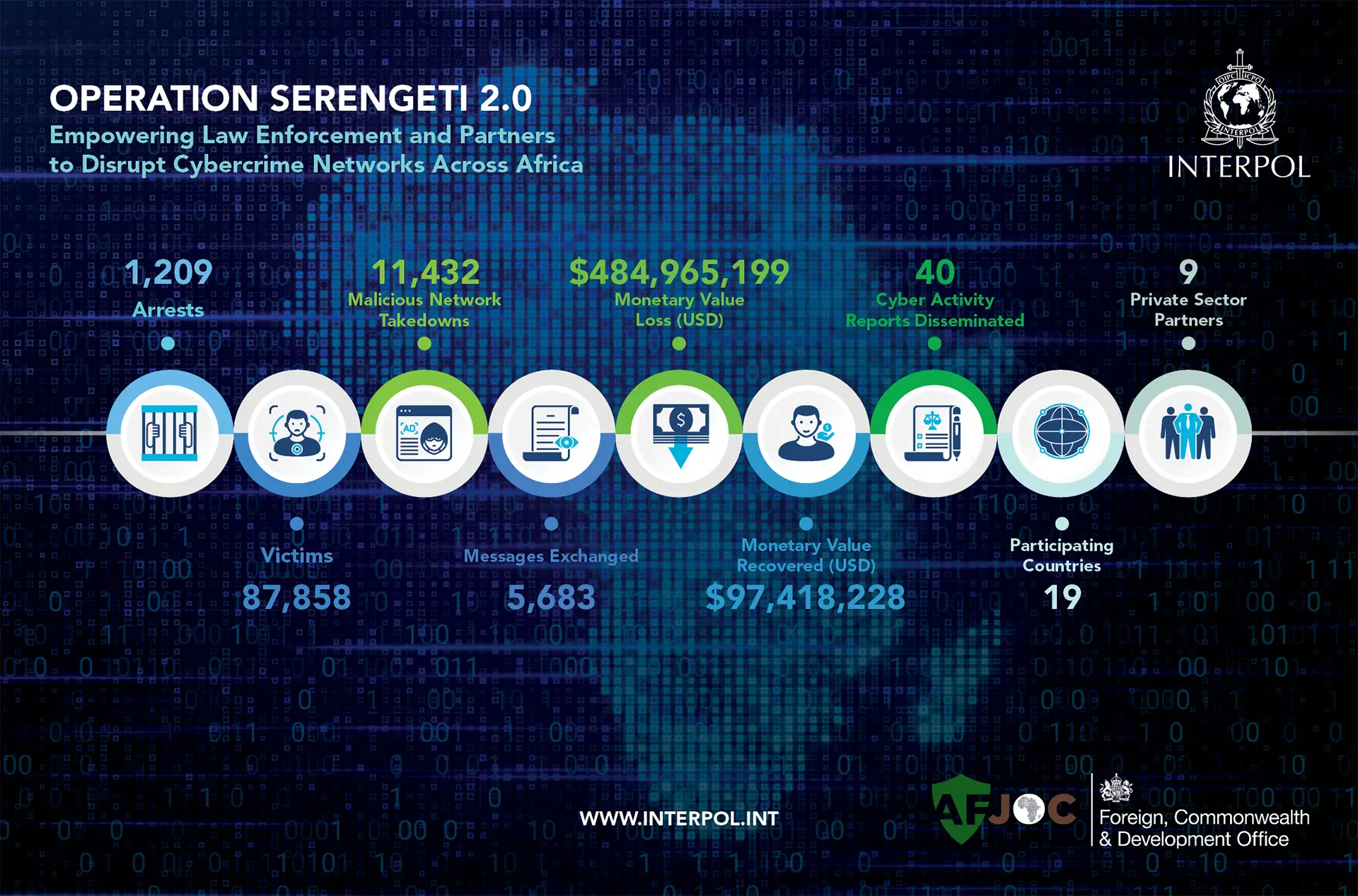

 At the 20th Internet Governance Forum in Lillestrøm, Norway, the UN Internet Governance Forum's dynamic coalition Internet Standards, Security and Safety (IS3C) released its new report on post-quantum policies. This report presents the findings of a collaborative study undertaken by IS3C and the French domain name registry Afnic and examines the critical need for Post-Quantum Cryptography (PQC) to achieve greater security in the ever-expanding global IoT landscape.
At the 20th Internet Governance Forum in Lillestrøm, Norway, the UN Internet Governance Forum's dynamic coalition Internet Standards, Security and Safety (IS3C) released its new report on post-quantum policies. This report presents the findings of a collaborative study undertaken by IS3C and the French domain name registry Afnic and examines the critical need for Post-Quantum Cryptography (PQC) to achieve greater security in the ever-expanding global IoT landscape.
 Ever buy a used car only to realize later that you've purchased a lemon? That scenario occurs because of information asymmetry between the seller -- who knows the car is a lemon -- and the buyer who doesn't. Without transparency, the market assumed that any used car for sale is a lemon, so that drove down the price of good used cars. The good news is that thanks to the Internet, buyers now have access to data that can help them determine if a car is a lemon or a good buy.
Ever buy a used car only to realize later that you've purchased a lemon? That scenario occurs because of information asymmetry between the seller -- who knows the car is a lemon -- and the buyer who doesn't. Without transparency, the market assumed that any used car for sale is a lemon, so that drove down the price of good used cars. The good news is that thanks to the Internet, buyers now have access to data that can help them determine if a car is a lemon or a good buy.
 As the world races towards digital transformation, the technologies we choose will have a lasting impact on our planet. Blockchain, NFTs, and other crypto assets have garnered much attention for their ability to securely and immutably store records. However, the environmental cost of maintaining these technologies is often overlooked. The energy consumption required to sustain blockchains, particularly those using Proof of Work (PoW), is enormous...
As the world races towards digital transformation, the technologies we choose will have a lasting impact on our planet. Blockchain, NFTs, and other crypto assets have garnered much attention for their ability to securely and immutably store records. However, the environmental cost of maintaining these technologies is often overlooked. The energy consumption required to sustain blockchains, particularly those using Proof of Work (PoW), is enormous...
 The DNS is a crucial part of today's Internet. With the fracturing of the network's address space as a byproduct of IPv4 address run down and the protracted IPv6 transition the Internet's name space is now the defining attribute of the Internet that makes it one network. However, the DNS is not a rigid and unchanging technology. It has changed considerably over the lifetime of the Internet and here I'd like to look at what's changed and what's remained the same.
The DNS is a crucial part of today's Internet. With the fracturing of the network's address space as a byproduct of IPv4 address run down and the protracted IPv6 transition the Internet's name space is now the defining attribute of the Internet that makes it one network. However, the DNS is not a rigid and unchanging technology. It has changed considerably over the lifetime of the Internet and here I'd like to look at what's changed and what's remained the same.
 From the humble beginnings of ARPANET to the birth of the internet as we know it today, domain registrars have been the silent architects of our online activity. Now, as we stand on the cusp of the Web3 revolution, domains are set to undergo yet another profound transformation. Internet innovations have given us a remarkable ability to connect, but now we are bouncing against the limits of this paradigm.
From the humble beginnings of ARPANET to the birth of the internet as we know it today, domain registrars have been the silent architects of our online activity. Now, as we stand on the cusp of the Web3 revolution, domains are set to undergo yet another profound transformation. Internet innovations have given us a remarkable ability to connect, but now we are bouncing against the limits of this paradigm.
 In 2014, computer scientist Gavin Wood coined the term "Web 3.0." The phrase, which has now been shortened to "Web3", refers to the third generation of the internet that's designed to be truly decentralised and free from a central authority. Web3 has the potential to add real-world value for businesses by creating additional avenues to reach consumers. However, owing to its less regulated nature, brands also have the potential to be taken advantage of both by users and by the providers in the space.
In 2014, computer scientist Gavin Wood coined the term "Web 3.0." The phrase, which has now been shortened to "Web3", refers to the third generation of the internet that's designed to be truly decentralised and free from a central authority. Web3 has the potential to add real-world value for businesses by creating additional avenues to reach consumers. However, owing to its less regulated nature, brands also have the potential to be taken advantage of both by users and by the providers in the space.
Last Saturday marked the 53rd anniversary of the Internet. While the vast majority of its five billion users have been online for less than a decade, the Internet was taken into use on October 29th, 1969, when two computers connected to the ARPANET exchanged a message. Although the Internet has been around for a while, it remained below most people's radar until the late 1990s when the dot com boom started.
 For several years, many within ICANN circles have raised concerns about the escalating nature of domain name system (DNS) abuse. While some strides were made toward a safer DNS, new data - this time from a comprehensive study of DNS abuse by the European Union - demonstrates that abuse remains a frustratingly obstinate problem that requires urgent attention. We've seen some registries and registrars testing innovative industry-led initiatives in an effort to address the issues.
For several years, many within ICANN circles have raised concerns about the escalating nature of domain name system (DNS) abuse. While some strides were made toward a safer DNS, new data - this time from a comprehensive study of DNS abuse by the European Union - demonstrates that abuse remains a frustratingly obstinate problem that requires urgent attention. We've seen some registries and registrars testing innovative industry-led initiatives in an effort to address the issues.
 Avivah Litan, the storied Gartner analyst, laid it down succinctly for insiders in her blog two and one-half years ago. She said, "Web 3.0 will transform us from Web 2.0's monetization via surveillance capitalism and advertising to monetization built directly into the protocol that is equally available to any connected user." Translated, that means we'll control our destiny by owning and managing our credentials for logging into systems, content, financial resources, and, importantly, our data. And, we are told, blockchain technology will enable all that.
Avivah Litan, the storied Gartner analyst, laid it down succinctly for insiders in her blog two and one-half years ago. She said, "Web 3.0 will transform us from Web 2.0's monetization via surveillance capitalism and advertising to monetization built directly into the protocol that is equally available to any connected user." Translated, that means we'll control our destiny by owning and managing our credentials for logging into systems, content, financial resources, and, importantly, our data. And, we are told, blockchain technology will enable all that.
 On November 15, Russia demonstrated its ability to destroy an orbiting satellite, Cosmo 1408, by hitting it with a direct-ascent rocket. In an earlier post, I noted the anti-satellite demonstration and speculated on why Russia may have done it and why the Chinese had not condemned it. In this post, I’ll look at the evolution of the resulting debris cloud and say more about the possible motivation.
On November 15, Russia demonstrated its ability to destroy an orbiting satellite, Cosmo 1408, by hitting it with a direct-ascent rocket. In an earlier post, I noted the anti-satellite demonstration and speculated on why Russia may have done it and why the Chinese had not condemned it. In this post, I’ll look at the evolution of the resulting debris cloud and say more about the possible motivation.
 In late 2021, the term Web3 began to increasingly appear in mainstream media outlets. This does not refer, however, to a sudden increase in interest in the Semantic Web as defined by Tim Berners-Lee, but rather to something entirely different. Enthusiasts of cryptocurrencies and nonfungible tokens (NFTs) seized this term and changed its meaning to reflect a supposed new stage of the Web, running on top of blockchains and having decentralization as its core value. To summarize the narrative being spun, the first generation of the Web afforded independence to the owners of websites, but this did not extend to the average user...
In late 2021, the term Web3 began to increasingly appear in mainstream media outlets. This does not refer, however, to a sudden increase in interest in the Semantic Web as defined by Tim Berners-Lee, but rather to something entirely different. Enthusiasts of cryptocurrencies and nonfungible tokens (NFTs) seized this term and changed its meaning to reflect a supposed new stage of the Web, running on top of blockchains and having decentralization as its core value. To summarize the narrative being spun, the first generation of the Web afforded independence to the owners of websites, but this did not extend to the average user...
 Months ago, while watching a Saturday Night Live skit about non-fungible tokens (NFT) featuring a parody of Janet Yellen speaking to a high school economics class, I realized what an NFT is and how they work. What they represent, how they are minted, and how their value is exchanged became clear while watching Pete Davidson in a boy wonder unitard rap about the latest crypto-phenomena. It was only later that I realized that NFTs have plenty of practical applications.
Months ago, while watching a Saturday Night Live skit about non-fungible tokens (NFT) featuring a parody of Janet Yellen speaking to a high school economics class, I realized what an NFT is and how they work. What they represent, how they are minted, and how their value is exchanged became clear while watching Pete Davidson in a boy wonder unitard rap about the latest crypto-phenomena. It was only later that I realized that NFTs have plenty of practical applications.
 Decentralization is exciting. Headline-grabbing, even. After all, in a world where frustration levels are sky-high and rising, it should not come as a shock that many individuals are willing to embrace what we might call "anti-system solutions." Decentralized solutions, in our case, which come with the ambitious promise of providing everything their centralized counterpart can provide but without centralized points of failure and regulations. In our previous article, we enumerated several advantages associated with decentralized domain names.
Decentralization is exciting. Headline-grabbing, even. After all, in a world where frustration levels are sky-high and rising, it should not come as a shock that many individuals are willing to embrace what we might call "anti-system solutions." Decentralized solutions, in our case, which come with the ambitious promise of providing everything their centralized counterpart can provide but without centralized points of failure and regulations. In our previous article, we enumerated several advantages associated with decentralized domain names.
 With solution providers such as Unstoppable Domains or Handshake, and blockchain technology-friendly browsers, such as Brave, that are more than happy to assist on the implementation front, decentralized alternatives to the traditional Domain Name System has been receiving more and more attention lately. Centralized vs. decentralized... what will it be?
With solution providers such as Unstoppable Domains or Handshake, and blockchain technology-friendly browsers, such as Brave, that are more than happy to assist on the implementation front, decentralized alternatives to the traditional Domain Name System has been receiving more and more attention lately. Centralized vs. decentralized... what will it be?
 The International Trademark Association's Blockchain Subcommittee is interested in meeting companies working on Blockchain applications related to intellectual property. The Blockchain Subcommittee's mission is to explore the use of blockchain technology in trademark prosecution, maintenance, protection, and practice, including the opportunities and threats to the value of trademarks, brands, and consumer trust in emerging blockchain technologies.
The International Trademark Association's Blockchain Subcommittee is interested in meeting companies working on Blockchain applications related to intellectual property. The Blockchain Subcommittee's mission is to explore the use of blockchain technology in trademark prosecution, maintenance, protection, and practice, including the opportunities and threats to the value of trademarks, brands, and consumer trust in emerging blockchain technologies.
 INTERPOL Leads Arrest of 1,209 Suspects in Pan-African Cybercrime Crackdown, Recovers $97 Million
INTERPOL Leads Arrest of 1,209 Suspects in Pan-African Cybercrime Crackdown, Recovers $97 Million China’s Central Bank Allows Some Commercial Lenders to Start Running Trials of Its Digital Currency
China’s Central Bank Allows Some Commercial Lenders to Start Running Trials of Its Digital Currency